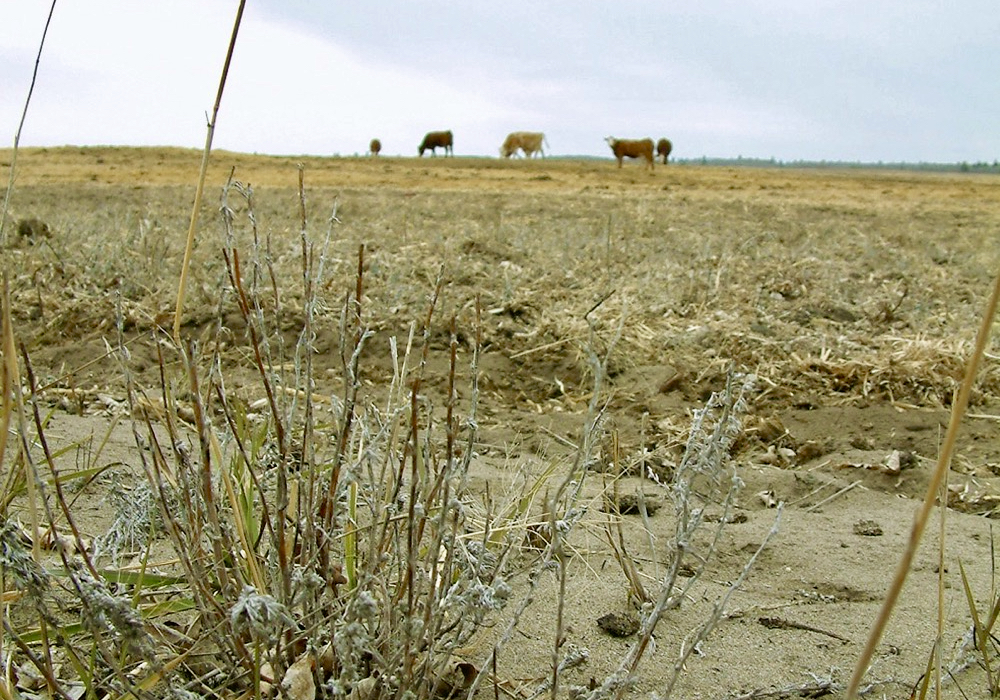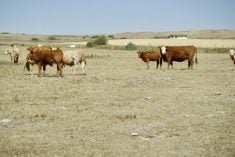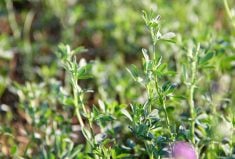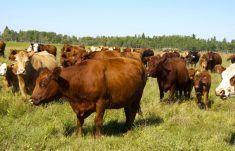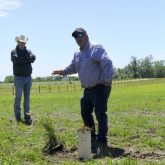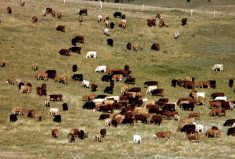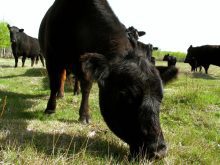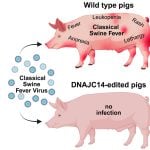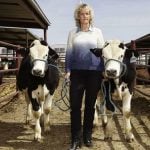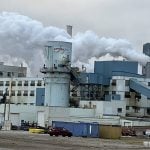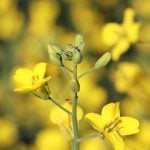When it comes to forages or foraging, what happens below ground is just as important as the biomass material above ground. Interest in soil has traditionally focused on chemical characteristics — including minerals such as nitrogen, phosphorus and potassium, for fertilizer recommendations — or characteristics such as salinity and pH.
Understanding of the significance of physical and biological parameters in a healthy soil, however, has increased substantially during the past few years. Soil aggregation, soil biology, active carbon, soil respiration and mycorrhizae have become conversation topics; the industry is buzzing about regenerative ag and the quality of local production. Biological and physical soil functionality influence compaction, water infiltration, soil aggregation stability, root development, nutrient cycles and availability, carbon sequestration and storage and, of course, the volume and quality of forage produced.
Read Also
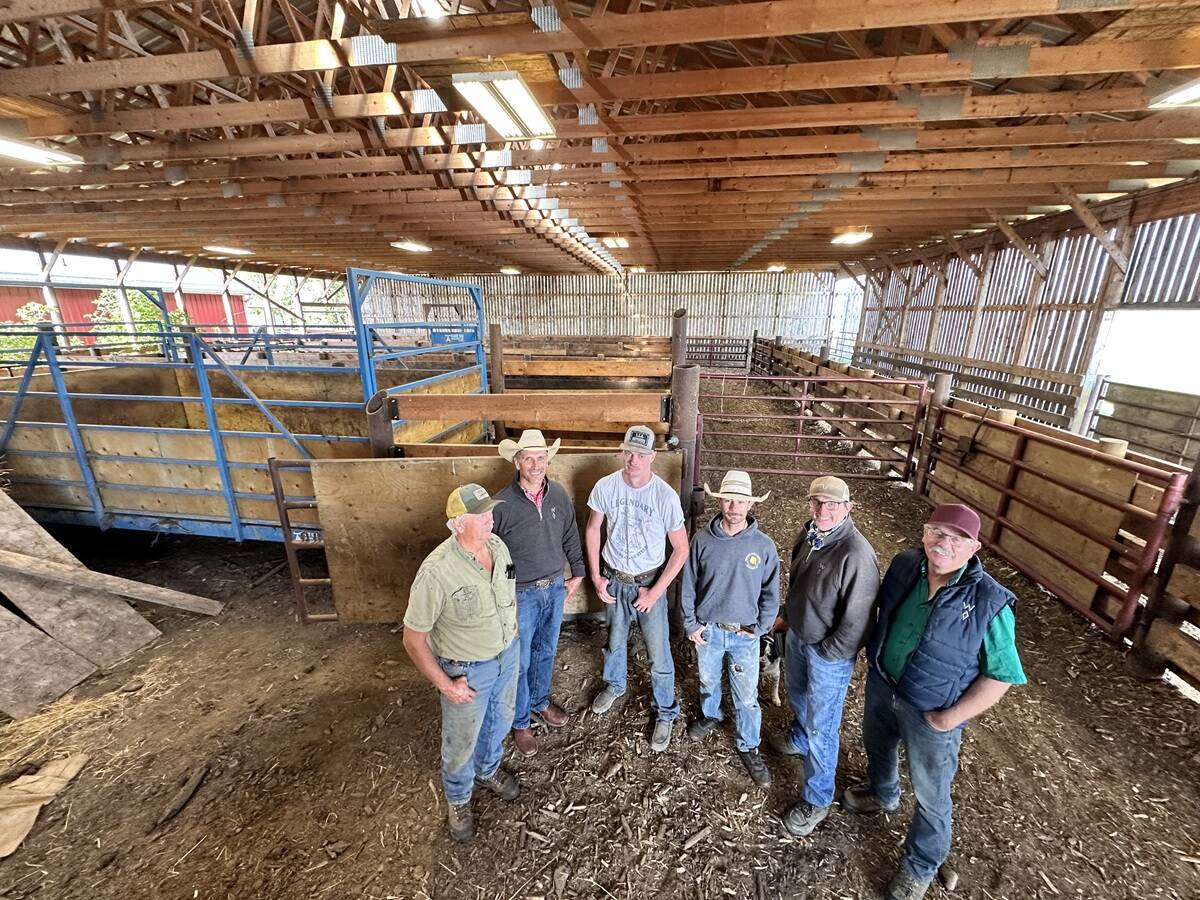
Farm families work together to graze cropland with cattle in the fall
These Alberta farm families have separate operations, but work together to manage their land
Benchmarking Alberta’s soils
The Chinook Applied Research Association is heading a provincial initiative funded by the Canada Agricultural Partnership (CAP) to create a database of soil parameters related to physical, biological and chemical indicators — much more information than traditional knowledge of chemical properties.
The study is led by Dr. Yamily Zavala, CARA’s soil health and crop management specialist. Zavala joined the CARA staff eight years ago, bringing a passion for soil health garnered from her experience working with farmers in many countries, addressing soil concerns and improving growing conditions for many different crops. She also managed the soil and plant lab at a research centre in her home country of Venezuela. Zavala was instrumental in the development of CARA’s Soil Health Lab (CARASHLab), the first farmer-focused lab evaluating physical and biological soil qualities in Western Canada. The lab uses protocols from Cornell University and the former Canadian Soil Food Web Lab.
Participants in the Alberta Soil Health Benchmark Study include producer-directed applied research and forage associations working in several soil zones throughout the province. Each group documents field history and management information. Each uses the same protocols when collecting soil samples, generating information from thousands of sites during the course of the study. Samples are received and processed through CARA’s Soil Health Lab. Zavala supervises analysis of biological and biophysical characteristics, including soil respiration rate, texture and wet aggregation stability, the level of active carbon rate and total and potential biological biomass.
Analysis of chemical components is currently contracted to A&L Labs. The University of Alberta’s soil lab determines the total organic carbon, carbon and nitrogen levels. All this information is being summarized into a database to help generate future strategic management practices targeting specific soil constraints by regions. Monitoring (revisiting) sample sites will help determine if those management practices are working or not. Adjustments can be made to improve soil health resilience, regenerating the soil ecosystem and consequently land productivity.
The trends in soil health from various management practices used at multiple sites also need to be documented. Funding for the benchmark project wraps in 2022, but further verification of management practices at over 200 of the original benchmark sites will be made through a new project supported by Results Driven Agricultural Research (RDAR).
The CARASHLab generates a comprehensive report for each site sampled, which is shared with the local association and landowners. The report captures a picture of soil health and is a point of reference for comparison to future sampling or following management changes. It includes measurements of the individual soil indicators as well as a ranking of whether the measurement is an area of concern or constraint for overall soil productivity. Suggestions for mitigation or improvement of problem soil components may also be added to the soil scorecard. The soil health report cards have been the focus of several extension activities and discussions held by participating producer associations.
Observations to date
Although not all samples collected to date have been processed or added to the data bank, Zavala has observed a few trends. Compaction and poor water infiltration are common concerns at many sites and are often associated with lower biological components. She has observed a great diversity of beneficial soil creatures including protozoa functional groups, fungal hyphae and nematode feeding groups as well as predatory species. Each soil sample evaluated has its own “biological signature” and no two samples have the same biological “fingerprint.” The biology in some soils just needs to be “woken up” by adding diversity to the forage mix or crop rotation, maintaining green growth longer during the growing season or by adding biological amendments to the soil.
We will identify specific strategic management practices and recommendations during the final phases of the benchmark study as well as the management verification project which is just beginning. The benchmark study is intended to be a working tool that helps us to better understand soil health, how various management practices have an impact on it and which practices might help improve land resilience. It is Zavala’s intention that it continue to grow and provide valuable information to producers into the future.
Dianne Westerlund is the manager of the Chinook Applied Research Association and a forage agronomist.

